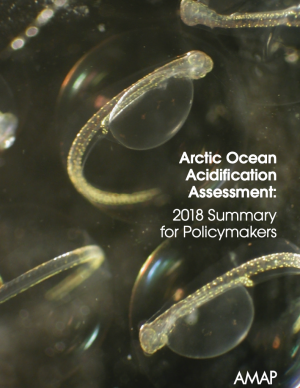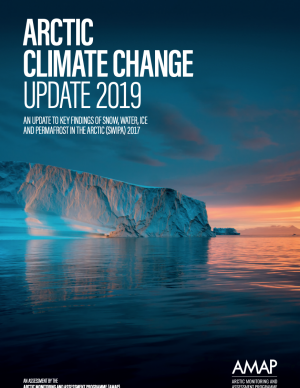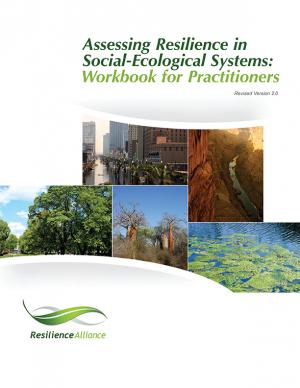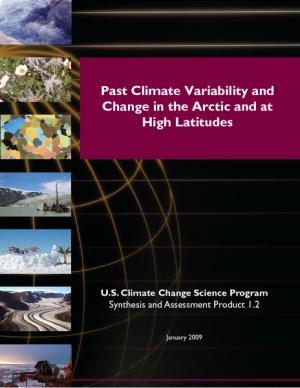This Summary for Policymakers summarizes the findings of the AMAP Assessment 2018: Arctic Ocean Acidification report released in October 2018. It offers a review of the latest science relating to regional ocean acidification, the biological responses to it, an overview of case studies and their associated findings, and recommendations for the Arctic Council.
Access a range of climate-related reports issued by government agencies and scientific organizations. Browse the reports listed below, or filter by scope, content, or focus in the boxes above. To expand your results, click the Clear Filters link.
Drawing and building on the findings of the Arctic Monitoring and Assessment Programme's (AMAP) 2017 Snow, Water, Ice and Permafrost in the Arctic (SWIPA) assessment, this document provides updated observations, information from other recent assessments, and conclusions from the latest reviews of Arctic trends and indicators. The pace of change in the Arctic is so rapid that new records are being set annually, and each additional year of data strengthens the already compelling evidence of a rapidly changing Arctic.
Climate change is making the Arctic a greener, warmer, and increasingly accessible place for economic opportunity. However, climate impacts such as sea ice loss and rising ocean acidification are straining coastal community resilience and sound resource stewardship. NOAA's Arctic Action Plan outlines ways for scientists and stakeholders to share their progress regarding this vast, valuable, and vulnerable region.
This report summarizes the current state of knowledge on potential abrupt changes to the ocean, atmosphere, ecosystems, and high-latitude areas, and identifies key research and monitoring needs. The report calls for action to develop an abrupt change early warning system to help anticipate future abrupt changes and reduce their impacts.
The workbook for practitioners uses strategic questions and activities to assess resilience in social-ecological systems. The approach involves constructing a conceptual model of a system that includes resources, stakeholders, and institutions, and identifies potential thresholds between alternative systems states in order to provide insight into factors that build or erode a system's resilience. A resilience assessment can help with developing strategies for coping with uncertainty and change.
Average temperatures in the Arctic have increased at almost twice the rate of the planet as a whole. Such temperature changes have been accompanied by shrinking sea ice, melting ice and permafrost on land, and widespread impacts to land and ocean ecosystems. This Synthesis and Assessment Product, developed as part of the U.S. Climate Change Science Program, offers recommendations for future research in this area.









